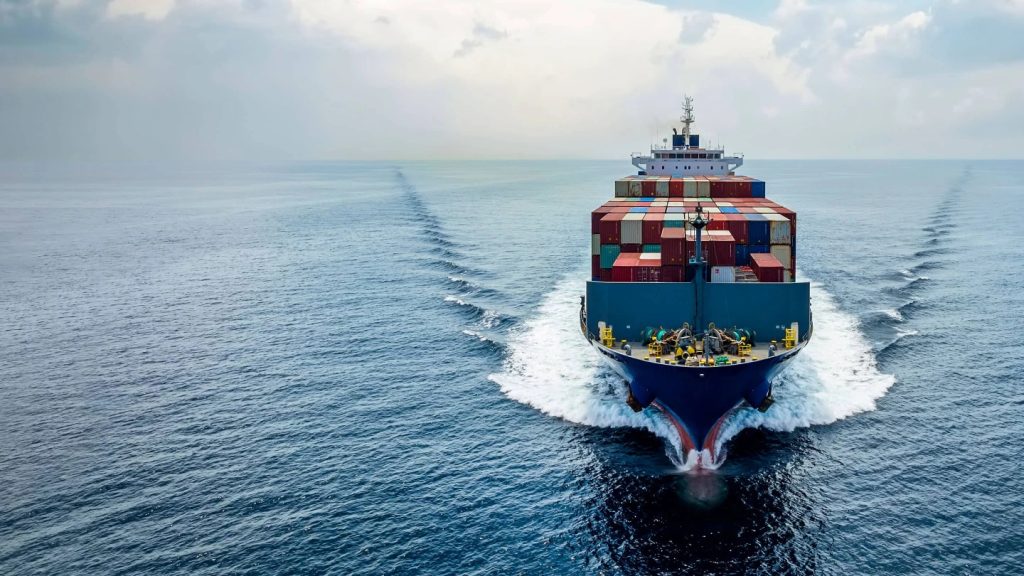With Coppe’s leadership, a study projects 42% decrease in maritime emissions in just one decade
Planeta COPPE / Blue Economy / Low Carbon / Ocean Engineering / News
Date: 09/07/2025

Responsible for around 3% of global greenhouse gas (GHG) emissions—a volume comparable to that of a country like Germany—maritime transport is one of the most challenging sectors in the global race for decarbonization. Classified as a hard-to-abate sector, it faces technological, economic, and regulatory limitations that complicate the transition to low-carbon fuels and operations. To address this scenario, the International Maritime Organization (IMO) has set a target of achieving net-zero emissions from the sector by 2050.
Coppe/UFRJ stands out as a leading player in developing scientific solutions aimed at this goal. Coordinated by Professor Paula Pereda from USP and with technical leadership at Coppe by Professor Jean-David Caprace of the Ocean Engineering Program (PEnO), a groundbreaking study developed an integrated assessment model to support the decarbonization of international maritime transport. The research combines Multicriteria Decision Analysis (MCDA) and techno-economic simulations, offering a robust framework to guide public policies and strategic decisions toward zero-emissions shipping.
Results indicate that technical and operational measures—such as route optimization, energy efficiency improvements, and onboard technologies—can reduce the sector’s emissions by up to 42% by 2035. Market measures, such as taxes and subsidies, are essential to boost the use of sustainable fuels and expand the adoption of more innovative solutions.
The research was published in two complementary articles in the journal Sustainability and were coauthored by Paula Pereda (USP), Andrea Lucchesi (USP), Luiz Felipe Assis (Poli-UFRJ), Crístofer Hood Marques (FURG), Thais Diniz Oliveira (USP) and Rayan Wolf (USP). The work directly contributes to meeting international climate goals, positioning Brazil at the forefront of studies on the decarbonization of maritime transportation.
The study also identified a current preference among shipowners for lower-cost biofuels, such as biofuel intermediate straight vegetable oil (BISVO) and biofuel intermediate fatty acid methyl ester (BIFAME). More ambitious alternatives, such as green hydrogen, biomethanol and ammonia, still face significant economic barriers, highlighting the need for political incentives to make them viable on a commercial scale.
Additionally, the team analyzed the potential impacts of a global emissions tax on the maritime sector. Simulations indicate that taxes between US$100/t in 2028 and US$250/t in 2035 could reduce global exports by up to 1.38% (approximately US$339 billion) and raise food prices, with negative effects on emerging economies and worsening food insecurity—with the potential for 1.9 million more people facing hunger by 2035.
Read the articles: “Sustainable Shipping: Modeling Technological Pathways Toward Net-Zero Emissions in Maritime Transport (Part I)” e “Sustainable Shipping: Modeling Economic and Greenhouse Gas Impacts of Decarbonization Policies (Part II)”.
- Decarbonization
- Innovation
